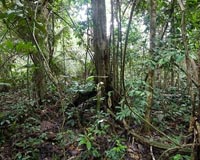 |
Moscow (AFP) Sept 2, 2010 Prime Minister Vladimir Putin said Thursday that Russia would not lift a ban on grain exports before next year's harvest, extending the major world producer's embargo until at least mid-2011. "I believe it's necessary to note that we will only be able to consider lifting the grain export ban after next year's harvest ... and we have clarity on the balances," Putin said. "We cannot just keep lurching back and forth," he said at a government meeting in televised remarks. Putin gave no specific timeframe and his spokesman, Dmitry Peskov, only confirmed that the ban would not be lifted on December 31. A record drought has destroyed a quarter of Russia's harvest and Putin signed a decree early last month banning grain exports from August 15 to December 31. Putin subsequently said the government might extend the ban into next year. The export ban is aimed at keeping the domestic market well supplied with grain to prevent sharp rises in food prices with Russia's leaders nervous of social unrest and keen to avoid any discontent ahead of elections due in 2012. The export ban from such a key global player stung world markets, sending wheat prices to two-year highs and sparking worries of a crisis in global food supplies. At the government meeting, Putin said the announcement was made "in order not to generate unnecessary nervousness (and) to secure stability and predictability" for all market participants. Agriculture experts said Putin's announcement was no surprise. "What happened is what everyone expected," Andrei Sizov, managing director of SovEcon, a Moscow-based agriculture consultancy, told AFP. Sizov said the move meant the grain export ban would not be lifted until at least July 2011 when farmers begin harvesting in the country's south and the government would have an idea of the amount grown. Russia was the world's number three wheat exporter last year when it sold 21.4 million tonnes of grain and had embarked on a major new campaign to boost its international market share, an ambition that now must be set aside. At a separate meeting on food security, Agriculture Minister Yelena Skrynnik said Russia's grain crop this year would fall to 60-65 million tonnes because of the country's worst drought in decades. But with last year's grain reserves of 26 million tonnes, the country will have enough grain to meet this year's demand, she said in Saratov in central Russia in comments released by the government. But the country would have to produce 85-90 million tonnes of grain next year to "stabilise the situation," Russian news agencies quoted Skrynnik as saying. "We consider this task to be manageable," she was quoted as saying. Russia is beginning to tally the damage caused by the drought, with economists saying the disaster could cost the country seven to 15 billion dollars, undercutting a modest economic revival. Drought and an unprecedented heatwave triggered forest and brush fires that destroyed whole villages and left more than 50 people dead, according to official tallies. Fires flared up again in the south amid soaring temperatures on Thursday, killing two people and burning down more than 160 houses and buildings, the emergencies ministry said. With the ministry warning the fires risked spreading to other southern regions, President Dmitry Medvedev ordered authorities to mobilise all means to fight them, news agencies quoted the Kremlin as saying. Russia is heading for presidential elections in 2012 and the ruling duo of Putin and Medvedev are keen to keep a lid on public discontent as Russians stockpile traditional foods like buckwheat amid reports of shortages. In Saratov, Medvedev said the country had enough food, blaming speculators for hiking prices. "Despite the abnormal heat and despite the drought, our country has sufficient grain reserves," he said in comments released by the Kremlin.
Share This Article With Planet Earth
Related Links Farming Today - Suppliers and Technology
 More CO2 means more poison ivy
More CO2 means more poison ivyWashington (UPI) Sep 1, 2010 Rising carbon dioxide in the atmosphere may threaten climate change and be bad news for humans but poison ivy likes it, U.S. researchers say. A report in the journal Environmental Health Perspectives last year said the amount of CO2 in the atmosphere has grown by 22 percent since 1960, not so good for humans but great for poison ivy and other vines, The Washington Post reported Tuesday. ... read more |
|
| The content herein, unless otherwise known to be public domain, are Copyright 1995-2010 - SpaceDaily. AFP and UPI Wire Stories are copyright Agence France-Presse and United Press International. ESA Portal Reports are copyright European Space Agency. All NASA sourced material is public domain. Additional copyrights may apply in whole or part to other bona fide parties. Advertising does not imply endorsement,agreement or approval of any opinions, statements or information provided by SpaceDaily on any Web page published or hosted by SpaceDaily. Privacy Statement |